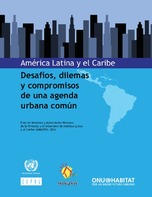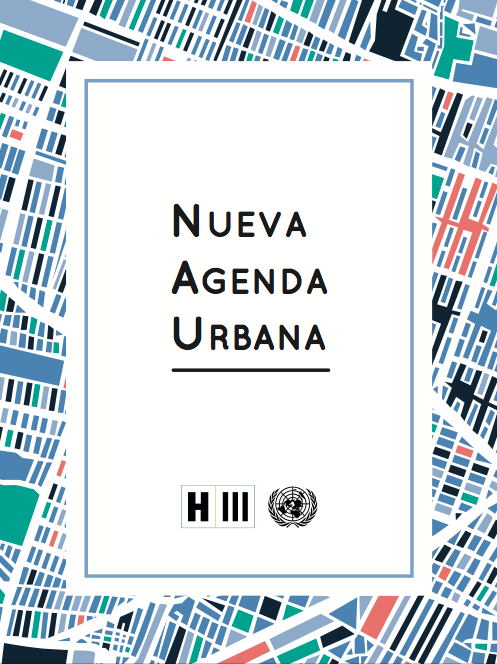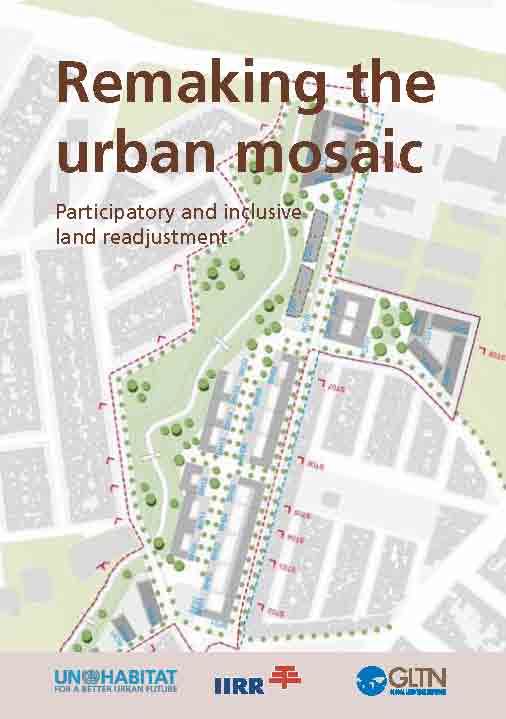Location
UN-Habitat is the United Nations programme working towards a better urban future.
Its mission is to promote socially and environmentally sustainable human settlements development and the achievement of adequate shelter for all. Cities are facing unprecedented demographic, environmental, economic, social and spatial challenges. There has been a phenomenal shift towards urbanization, with 6 out of every 10 people in the world expected to reside in urban areas by 2030. Over 90 per cent of this growth will take place in Africa, Asia, Latin America, and the Caribbean. In the absence of effective urban planning, the consequences of this rapid urbanization will be dramatic. In many places around the world, the effects can already be felt: lack of proper housing and growth of slums, inadequate and out-dated infrastructure – be it roads, public transport, water, sanitation, or electricity – escalating poverty and unemployment, safety and crime problems, pollution and health issues, as well as poorly managed natural or man-made disasters and other catastrophes due to the effects of climate change. Mindsets, policies, and approaches towards urbanization need to change in order for the growth of cities and urban areas to be turned into opportunities that will leave nobody behind. UN-Habitat, the United Nations programme for human settlements, is at the helm of that change, assuming a natural leadership and catalytic role in urban matters. Mandated by the UN General Assembly in 1978 to address the issues of urban growth, it is a knowledgeable institution on urban development processes, and understands the aspirations of cities and their residents. For close to forty years, UN-Habitat has been working in human settlements throughout the world, focusing on building a brighter future for villages, towns, and cities of all sizes. Because of these four decades of extensive experience, from the highest levels of policy to a range of specific technical issues, UN-Habitat has gained a unique and a universally acknowledged expertise in all things urban. This has placed UN-Habitat in the best position to provide answers and achievable solutions to the current challenges faced by our cities. UN-Habitat is capitalizing on its experience and position to work with partners in order to formulate the urban vision of tomorrow. It works to ensure that cities become inclusive and affordable drivers of economic growth and social development.
Members:
Resources
Displaying 71 - 75 of 224Leveraging Land: Land-based Finance for Local Governments - A Reader
The potential contribution of land based financing to the development of sustainable and equitable cities and properly serviced communities is often underestimated. Land based financing is a collective name given to a range of instruments by which local governments could expand their revenue base and generate funds that will help them to deliver services and infrastructure development and achieve their maintenance goals.
Sustainable Development Goals: Monitoring Human Settlements Indicators
Today, more than half the world’s population lives in cities. By 2030, it is projected that 6 in 10 people will be urban dwellers. By 2050, the figure will have risen to 6.5 billion people; representing two-thirds of all civilization. Taking into account the increasing rural to urban migration and the rapid growth of cities in the developing world, it is clear that cities face a myriad of problems that may hinder planned growth and development.
América Latina y el Caribe: desafíos, dilemas y compromisos de una agenda urbana común
Este documento fue elaborado por el Foro de Ministros y Autoridades Máximas de la Vivienda y el Urbanismo de América Latina y el Caribe (MINURVI), con la colaboración de la Unidad de Asentamientos Humanos de la División de Desarrollo Sostenible y Asentamientos Humanos de la Comisión Económica para América Latina y el Caribe (CEPAL) y de la Oficina Regional para América Latina y el Caribe del Programa de Naciones Unidas para los Asentamientos Humanos (ONU-Hábitat/ORPALC). Además, contó con el aporte y las contribuciones de la Cooperación Regional Francesa para América del Sur.
Nueva Agenda Urbana
La Nueva Agenda Urbana se aprobó en la Conferencia de las Naciones Unidas sobre la Vivienda y el Desarrollo Urbano Sostenible (Hábitat III) celebrada en Quito, Ecuador, el 20 de octubre de 2016. La Asamblea General de las Naciones Unidas refrendó la Nueva Agenda Urbana en su sexagésimo octava sesión plenaria de su septuagésimo primer período de sesiones, el 23 de diciembre de 2016. Esta publicación no está sujeta a derechos de autor y puede ser reproducida libremente a condición que se mencione a las Naciones Unidas.
Remaking the Urban Mosaic
Participatory and inclusive land readjustment, or PILaR for short, is a way of reorganizing the ownership of land in and around cities in a pro-poor way. It brings together land parcels belonging to different owners and treats them as a single unit for planning and infrastructure provision. The municipality reserves a portion of the land for roads and other public infrastructure, and returns the rest to the original owners. Each owner gets back a smaller parcel, but it is worth more because it now has road access and other services.





